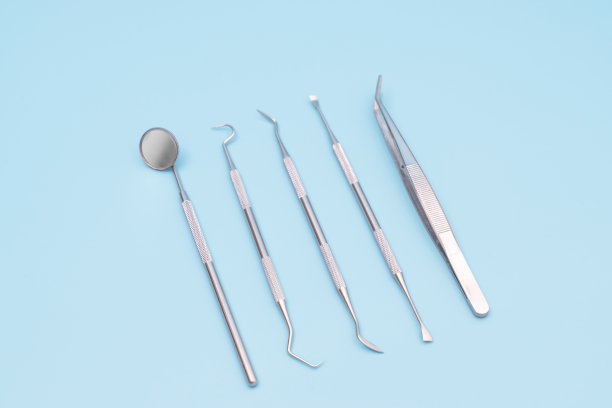Summary: Dental implants have emerged as a cutting-edge solution for individuals seeking to regain a healthy and functional smile after tooth loss. This comprehensive guide discusses four essential aspects of dental implant treatments: benefits, costs, recovery, and the overall impact on oral health. It highlights how dental implants can enhance ones quality of life by improving self-esteem and functionality. Additionally, readers will discover the financial considerations involved with dental implants and the recovery process that ensures long-term success. This article aids readers in making informed decisions about pursuing dental implants.
1. Key Benefits of Dental Implants

Dental implants offer numerous benefits, making them an increasingly popular choice for tooth replacement. First and foremost, they restore functionality, allowing individuals to chew and speak without the discomfort often associated with traditional dentures. This enhanced ability helps improve overall quality of life and contributes to better nutrition.
Another significant advantage of dental implants is their natural appearance. They are designed to look and feel like natural teeth, which can greatly boost a persons self-confidence. Unlike removable dentures, implants are fixed in place, providing a secure solution that often eliminates the concerns tied to slippage while eating or speaking.
Moreover, dental implants contribute to maintaining jawbone health. When a tooth is lost, the underlying bone can deteriorate from lack of stimulation. Implants stimulate the bone just like natural tooth roots, preventing bone loss and preserving facial structure.
2. Understanding the Costs of Dental Implants
The cost of dental implants can vary significantly based on several factors. On average, a single dental implant can range from $3,000 to $4,500, which includes the implant itself, abutment, and crown. However, additional procedures such as bone grafts or sinus lifts may be needed, further adding to the total expense.
Its critical to consider that while dental implants may appear expensive upfront, they can be more cost-effective over time. Traditional dentures may require frequent replacements, adjustments, and cleaning supplies that add to long-term costs. In contrast, dental implants can last a lifetime with proper care, making them a wise investment.
Insurance coverage for dental implants is another important aspect to examine. Many dental insurance plans now cover a portion of implant procedures, which can significantly ease financial burdens. Consulting with dental professionals can provide prospective patients with clarity about their insurance options and payment plans.
3. Recovery Process After Dental Implant Surgery
Recovering from dental implant surgery is an essential part of the treatment that requires care and attention. The recovery typically involves several stages. In the days following the procedure, patients may experience swelling and discomfort, which can be managed with prescribed medications and ice packs.
It’s crucial for individuals to follow their dentists post-operative care instructions closely. This includes maintaining oral hygiene, avoiding strenuous activities, and adhering to a soft food diet during the initial healing period. Good oral hygiene practices can promote healing and minimize the risk of infection.
While the initial healing period usually lasts about one week, complete integration of the implant into the jawbone—known as osseointegration—can take several months. Regular follow-up appointments will ensure that the healing process is on track and that the implants are successfully integrating.
4. Long-Term Impact on Oral Health
The long-term benefits of dental implants extend beyond aesthetics and functionality to encompass overall oral health. By preventing bone loss, implants help maintain facial structure and promote good gum health, reducing the risk of periodontal disease.
Additonally, dental implants do not require alteration of adjacent teeth, as is necessary with bridges. This preservation of natural teeth supports long-term oral health and reduces the likelihood of future dental complications.
Furthermore, dental implants can contribute to improved oral hygiene practices. With proper care, including brushing, flossing, and regular dental check-ups, patients can often enjoy a healthier mouth and potentially decrease the need for other dental treatments down the line.
Summary:
In conclusion, dental implants present a robust solution for those looking to restore their smiles. We have explored the numerous benefits they offer, the cost considerations, the necessary recovery process, and their long-term impact on oral health. Making the decision to pursue dental implants can significantly enhance ones quality of life and overall well-being.
This article is compiled by Vickong Dental and the content is for reference only.
Vickong Dental
Vickong Dental is a large medical group established in Hong Kong in 2008 by professors from well-known medical universities in Guangdong and Hong Kong, as well as medical doctors from key national '985' universities (including Master's supervisors and senior professors). The chain of branches brings together expert dentists with PhDs and Master's degrees from Hong Kong and Mainland China, committed to providing high-quality dental treatment.
"Vickong Dental Practices the University Motto of 'Healing and Serving Society,' with a Stable Operation for Sixteen Years. It Has Been honored with Hong Kong Enterprise Leaders's Choice,' and is a Global Trusted Implant Center for the Nobel Implant System. Recommended by Hong Kong Metro Broadcast and Guangdong Television, it Serves Customers from Over Thirty Countries and Regions, Gaining the Trust and Favor of Citizens from the Guangdong-Hong Kong-Macau Greater Bay Area and Surrounding Cities.

Thousands of customers' unanimous praise
The most recognized and highly recommended dental service by customers in the Guangdong-Hong Kong-Macau Greater Bay Area
We Ensure You Receive Detailed Care and Attention Here
Hong Kong standards, Shenzhen prices, Your Trusted English-speaking dentists

Vickong Dental Medical-Grade Instrument Disinfection Process
Vickong Dental Medical-Grade Instrument Disinfection Process

Vickong Dental Chain: A Warm and Comfortable Environment for Treatment






Appointment Hours

Q&A
Why choose Vickong Dental?
Vickong Dental practices the university motto 「Medicine to Benefit Society」, with each branch bringing together highly qualified dentists with doctoral and master’s degrees from Hong Kong and the Mainland, and has maintained seventeen years of steady operation。Recipient of 「2024 Hong Kong Enterprise Leaders Brand」, 「2025 Hong Kong Enterprise Leaders Brand」, a Nobel Biocare Global Trusted Implant Center, and a brand recommended by Metro Radio Hong Kong and Guangdong TV。
To date, we have served customers from more than thirty countries and regions,earning exceptionally high word-of-mouth recognition and trusted recommendations from residents across the Guangdong-Hong Kong-Macao Greater Bay Area and surrounding cities
We have eight major branches in Zhuhai、Shenzhen,and a consultation and service assurance center in Hong Kong,so you can book a free consultation at any time for any questions,which is very reassuring.
If I do not accept the quotation after the CT scan, will I be charged??
No! As long as the actual treatment has not started, you will not be charged any fees.
Will there be any additional charges during the treatment process?
No, there won’t be any additional charges. Before treatment begins, we will clearly explain the treatment plan and its corresponding fees. Only after the patient agrees and signs the consent form will we proceed with the dental service.
Can I pay in Hong Kong dollars?
Yes. Vickong Dental accepts payment in Hong Kong dollars. The amount will be converted based on the exchange rate of the day, and the applicable rate will be clearly communicated to you in advance.
Can I reschedule my appointment at any time?
Yes. Please contact us via **WeChat** or **WhatsApp** as early as possible, providing your original appointment time and details, along with your preferred new date and time slot for rescheduling.













